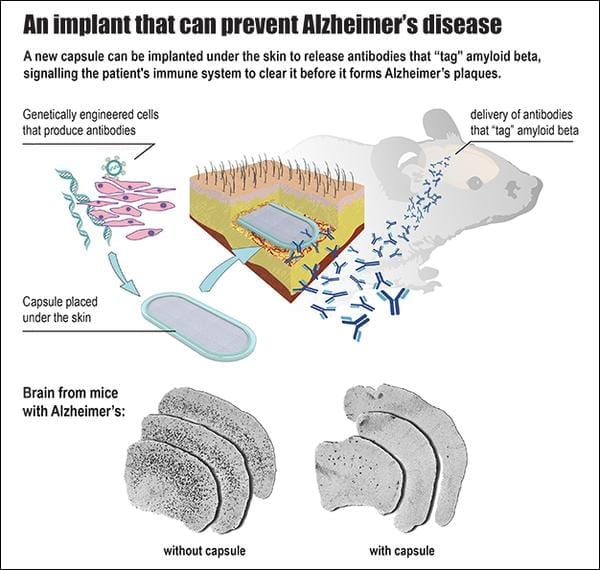
UCLA neuroscience research suggests an avenue for treating the empathically challenged
It’s an age-old quandary: Are we born “noble savages” whose best intentions are corrupted by civilization, as the 18th century Swiss philosopher Jean-Jacques Rousseau contended? Or are we fundamentally selfish brutes who need civilization to rein in our base impulses, as the 17th century English philosopher Thomas Hobbes argued?
After exploring the areas of the brain that fuel our empathetic impulses — and temporarily disabling other regions that oppose those impulses — two UCLA neuroscientists are coming down on the optimistic side of human nature.
“Our altruism may be more hard-wired than previously thought,” said Leonardo Christov-Moore, a postdoctoral fellow at UCLA’s Semel Institute of Neuroscience and Human Behavior.
The findings, reported in two recent studies, also point to a possible way to make people behave in less selfish and more altruistic ways, said senior author Marco Iacoboni, a UCLA psychiatry professor.
“This is potentially groundbreaking,” he said.
For the first study, which was published in February in Human Brain Mapping, 20 people were shown a video of a hand being poked with a pin and then asked to imitate photographs of faces displaying a range of emotions — happy, sad, angry and excited. Meanwhile, the researchers scanned participants’ brains with functional magnetic resonance imaging, paying close attention to activity in several areas of the brain.
One cluster they analyzed — the amygdala, somatosensory cortex and anterior insula — is associated with experiencing pain and emotion and with imitating others. Two other areas are in the prefrontal cortex, which is responsible for regulating behavior and controlling impulses.
In a separate activity, participants played the dictator game, which economists and other social scientists often use to study decision-making. Participants are given a certain amount of money to either keep for themselves or share with a stranger. In the UCLA study, participants were given $10 per round for 24 rounds, and the recipients were actual Los Angeles residents whose names were changed for the game, but whose actual ages and income levels were used.
After each participant had completed the game, researchers compared their payouts with brain scans.
Participants with the most activity in the prefrontal cortex proved to be the stingiest, giving away an average of only $1 to $3 per round.
But the one-third of the participants who had the strongest responses in the areas of the brain associated with perceiving pain and emotion and imitating others were the most generous: On average, subjects in that group gave away approximately 75 percent of their bounty. Researchers referred to this tendency as “prosocial resonance” or mirroring impulse, and they believe the impulse to be a primary driving force behind altruism.
“It’s almost like these areas of the brain behave according to a neural Golden Rule,” Christov-Moore said. “The more we tend to vicariously experience the states of others, the more we appear to be inclined to treat them as we would ourselves.”
In the second study, published earlier this month in Social Neuroscience, the researchers set out to determine whether the same portions of the prefrontal cortex might be blocking the altruistic mirroring impulse.
In this study, 58 study participants were subjected to 40 seconds of a noninvasive procedure called theta-burst Transcranial Magnetic Stimulation, which temporarily dampens activity in specific regions of the brain. In the 20 participants assigned to the control group, a portion of the brain that had to do with sight was weakened on the theory it would have no effect on generosity. But in the others, the researchers dampened either the dorsolateral prefrontal cortex or the dorsomedial prefrontal cortex, which combine to block impulses of all varieties.
Christov-Moore said that if people really were inherently selfish, weakening those areas of the brain would free people to act more selfishly. In fact, though, study participants with disrupted activity in the brain’s impulse control center were 50 percent more generous than members of the control group.
“Knocking out these areas appears to free your ability to feel for others,” Christov-Moore said.
The researchers also found that who people chose to give their money to changed depending on which part of the prefrontal cortex was dampened. Participants whose dorsomedial prefrontal cortex was dampened, meanwhile, tended to be more generous overall. But those whose dorsolateral prefrontal cortex was dampened tended to be more generous to recipients with higher incomes — people who appeared to be less in need of a handout.
“Normally, participants would have been expected to give according to need, but with that area of the brain dampened, they temporarily lost the ability for social judgments to affect their behavior,” Christov-Moore said. “By dampening this area, we believe we laid bare how altruistic each study participant naturally was.”
The findings of both studies suggest potential avenues for increasing empathy, which is especially critical in treating people who have experienced desensitizing situations like prison or war.
“The study is important proof of principle that with a noninvasive procedure you can make people behave in a more prosocial way,” Iacoboni said.
Learn more: Your brain might be hard-wired for altruism
The Latest on: Altruism
[google_news title=”” keyword=”altruism” num_posts=”10″ blurb_length=”0″ show_thumb=”left”]
via Google News
The Latest on: Altruism
- Scorpio: Your finance horoscope - May 08on May 9, 2024 at 5:00 pm
Your altruism has a preponderant impact on your life. When you think about it, everything is getting clearer, and you might even want to change a lot of things in your life and start to take new risks ...
- Oxford Mansion Linked to FTX Charity Lists for £15Mon May 8, 2024 at 3:14 am
An FTX Exchange-linked Castle near Oxford has gone on the open market for sale with a significantly lower valuation.
- The Problem With Altruismon May 6, 2024 at 3:33 pm
Navigating the delicate balance between selflessness and self-interest. From the evolutionary roots of altruism to its modern-day manifestations.
- 8-year-old Tampa Artist’s Heartfelt Mission: Turning Art into Altruismon April 30, 2024 at 8:09 am
In the bustling halls of Westchase Elementary School in Tampa, Florida, there’s a young artist making waves not only with his creative talent but also with his ...
- Kindness 101: Altruismon April 11, 2024 at 11:38 pm
Today's lesson is altruism. This week, we hear a story about a young man who finds a 20-dollar bill in a Cracker Barrel parking lot. What he decides to do with it is priceless.
- Egoism vs. Altruismon March 23, 2024 at 12:55 pm
Do your actions personify your self-centered or selfless nature? This egoism/altruism test will assess which side of the continuum you fall on. This test is made up of two types of questions ...
- Altruism Definition | What Is Altruismon January 21, 2024 at 4:12 pm
Pilina is an indigenous Hawaiian word, or concept, that describes our deep interconnectedness. Harvard clinical psychology fellow Jo Qina'au guides us through a contemplation of our profound ...
- Effective Altruism Contributed To The Fiasco At OpenAIon November 20, 2023 at 8:30 am
The real story, however, may be the OpenAI board’s concerns about AI safety, which in turn stem from the outsized influence of effective altruism in Silicon Valley. The safety of AI likely ...
- Altruism and Christian Ethicson October 5, 2023 at 2:09 am
Separated from its anchorage in religion, ethics has followed the social sciences in seeing human beings as fundamentally characterized by self-interest, so that altruism is either naively idealistic ...
- The Most Good You Can Do: How Effective Altruism is Changing Ideas About Living Ethicallyon November 19, 2022 at 2:43 pm
Those efforts have helped inspire the Effective Altruism (EA) movement, a worldwide network of people who have made a commitment to fight global poverty and disease. Many members of EA have pledged to ...
via Bing News










